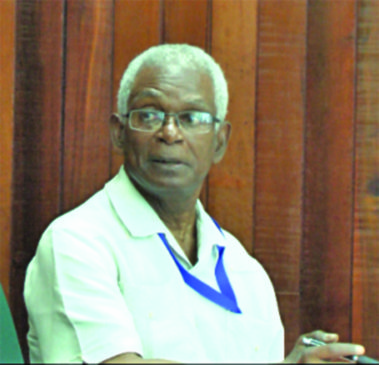By Jarryl Bryan

The State Assets Recovery Agency (SARA) has lost another bout against the Guyana Bank for Trade and Industry (GBTI), with the High Court throwing out its claim seeking over G$200 million from the bank in a case pertaining to the acquisition of land.
The legal proceedings were filed back in August by SARA, which sought G$274.1 million plus interest from GBTI for the bank’s acquisition of land at High and Young Streets, Kingston, where its headquarters now stand.
In the claim, SARA alleged that when the bank bid for and acquired the right to purchase this land which now holds the bank’s headquarters, it was the fourth-highest of 14 bids. It further claimed that GBTI’s purchase price of G$224 million is less than the most recent valuation of the property at the time.
However, the court ruled in favour of the bank on the grounds that SARA did not present a well-grounded cause of action together with the fact that the Agency was not the properly constituted legal entity to bring the case.
The court ruled that since the case was not brought by a Managing Director or Deputy Director, as set out in the State Assets Recovery Act 2017 that formed SARA, the proceedings filed in the statement of claims were rendered void.
According to the court, such claims can only be brought by either of the aforementioned people. In an interview with this publication, one of GBTI’s lawyers, explained that since the process to appoint the SARA Director was flawed, its locus standi was also flawed.
“The legislation itself said that court proceedings will be brought by the Director and the Act provided that the Director shall be a corporation sole, meaning the Director has corporate authority. The case was not brought by the Director; it was brought by SARA itself.”
“Now the Act also provided that the Director had to be appointed in a certain way, that is he has to be appointed by a decision of the National Assembly. And the person who was appointed must be someone recommended by the appointments committee of the National Assembly.”
The lawyer explained that SARA Director, Dr Clive Thomas was neither appointed by the National Assembly nor recommended by the appointments committee. According to the attorney, Thomas’ appointment was thus unlawful.
“Not being a lawful appointment, he was not a corporation sole. But in any case, he did not bring the proceedings. The SARA agency brought the proceedings. So on that basis, the court dismissed the case,” he said.
In light of this, SARA was ordered to pay costs to the bank in the tune of G$200,000. It is understood that SARA was represented by Attorney Ronald Bostwick. Efforts to contact Dr Thomas were futile. The matter was heard before Justice Franklin Holder.
Section 106 (2) of the SARA Act states that “within a period of not more than four months from the date of commencement of this Act, the Parliamentary Committee on appointments on the notification by the Minister shall recommend to the National Assembly a person to be appointed as Director of the SARA.”
When the SARA bill of 2017 was passed, Dr Thomas was at the time the Head of the State Assets Recovery Unit (SARU). The agency was renamed but despite the bill setting out the process for appointing a Director, Thomas was kept on as the Director of SARA.
This is not the first case brought by SARA against GBTI. It was only in March of this year that contempt of court charges brought by SOCU against eight top executives of GBTI were thrown out by the Magistrates’ Courts.
That matter stemmed from October 2017, when SOCU charged the bank’s Directors with contempt based on the advice of the Director of Public Prosecutions (DPP). The contempt proceedings stemmed from the bank’s failure to comply with a production order made by acting Chief Justice Roxane George on August 29, 2017.
GBTI had contended in its application for the variation of the order granted by Justice George that countless efforts were made to gather all the documents requested but it was discovered that some were either destroyed or could not be found. The documents were pertinent to the US$500 million Guyana Rice Development Board (GRDB) probe that was being conducted by SOCU.



